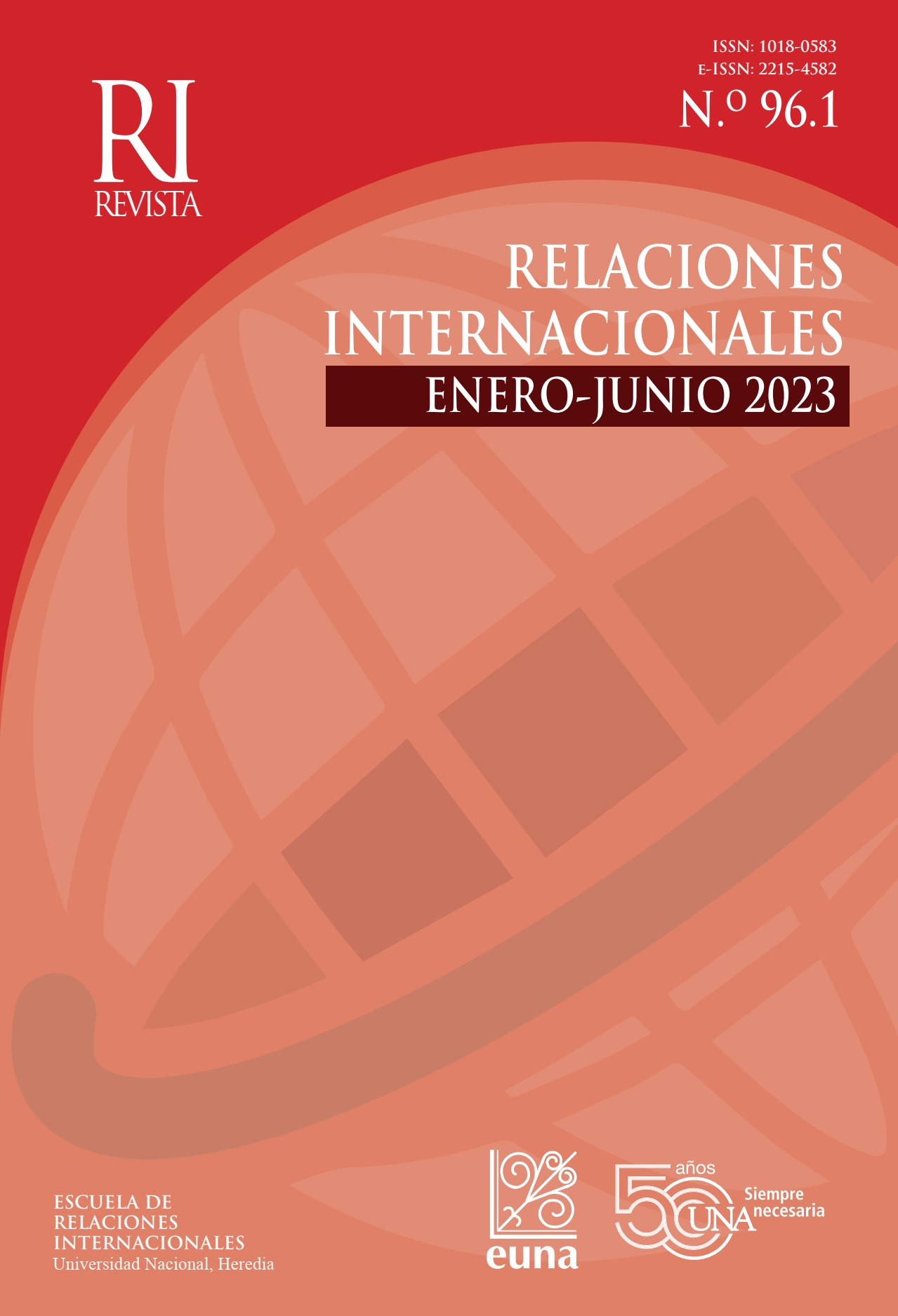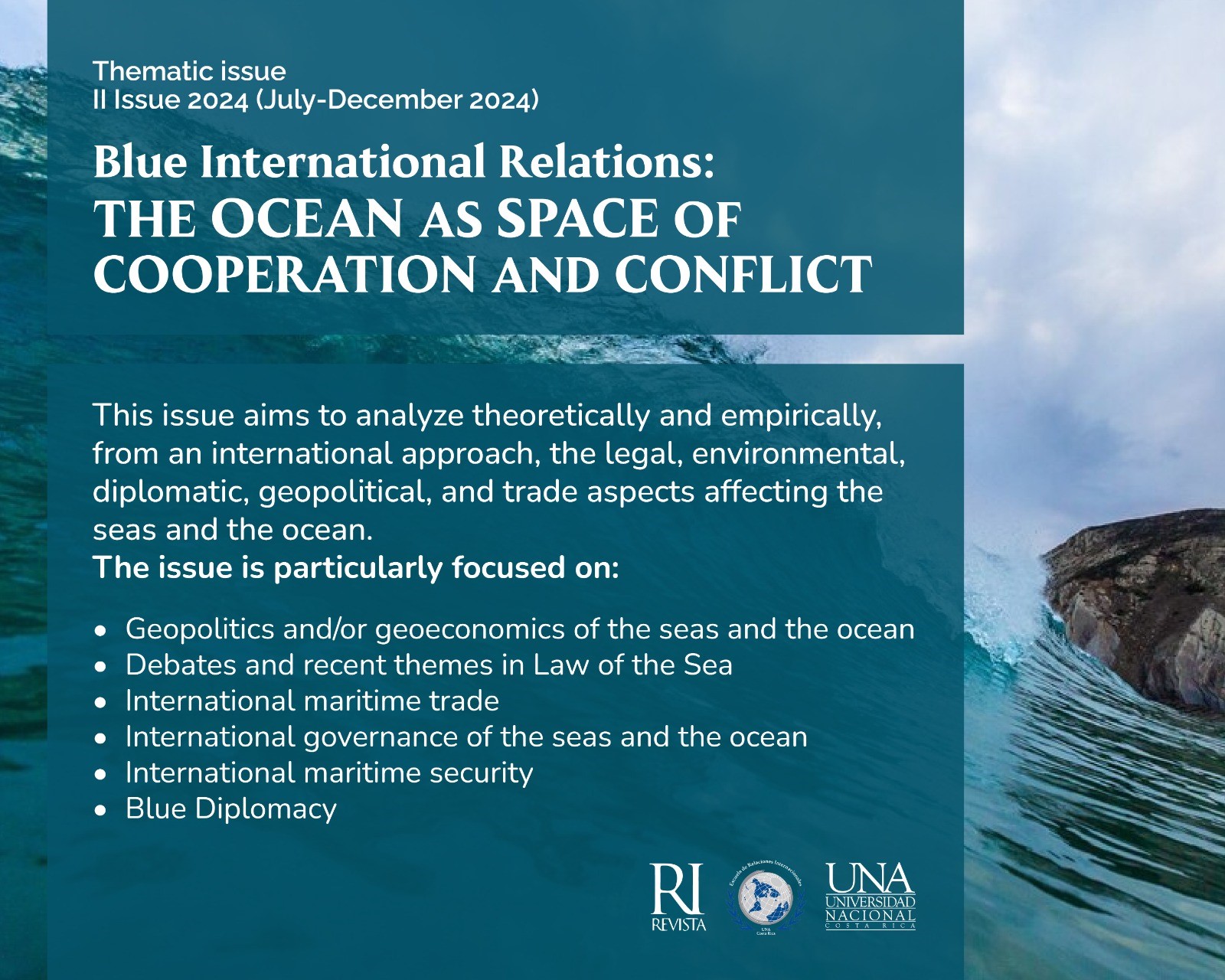Power and International Relations: The Cooperative Dimensión
DOI:
https://doi.org/10.15359/ri.96-1.3Keywords:
Cooperation, development, governance, international agenda, International Relations, powerAbstract
Power has been the engine of international relations and is the key concept for its study. The Realist and Neo-Realist schools have been the dominant ones in the discipline of International Relations and have understood the power in an exclusively conflictual way. Therefore, the aim of this article is to analyze the cooperative dimension of power conceptually and empirically. The article states that the contemporary Global Order is distinguished by being more plural in terms of agents and issues. Then, to understand this diversity, a broader concept of power is needed, which includes its cooperative dimension.
References
Acemoglu, D. y Robinson, J. (2012). Por qué fracasan los países. Los orígenes del poder, la prosperidad y la pobreza. Ediciones: Deusto, Grupo Planeta. Barcelona-España.
Acharya, A. (2018). Constructing Global Order. Agency and Change in World Politics. Cambridge University Press.
Acharya, A. (2014). The End of American World Order. Polity Press.
Bawa, A. y Dwiveda, K. (2021). Banking on Knowledge: The Role of Knowledge Exchange in Enhancing the Quality of Capital Flows. En H. Lucena y R. Miranda (Ed.) South-South Cooperation in the 21st Century: New challenges,
(pp. 23-87). University of Los Andes.
Gilpin, R. (2001). Global Political Economy. Understanding the international economic order. Princeton University Press.
Keohane, R. y Nye, J. (1988). Poder e interdependencia. La política mundial en transición. Editor Latinoamericano GEL.
Maddison, A. (2001). The World Economy: A Millennial Perspective. OECD.
Mearsheimer. J. (2001). The tragedy of Great Power politics. W. W. Nanon & Company.
Miranda, R. (2018). Desarrollo y cambio climático. Una mirada desde América Latina. International Latin American Studies Review. 21 (2), (pp. 193-212).
Miranda, R. (2019a). Sur Global y América Latina en el Orden Global contemporáneo. Humania del Sur. 14 (27), (pp. 175-198).
Miranda, R. (2019b). Co-development and Global Political Economy (GPE): The Role of the South – South Cooperation. En Research and Information Systems for Developing Countries (RIS) (Ed.) Global Issues and Local Actions in South-South Cooperation, (pp. 3-6). RIS.
Morgenthau, H. (1986). Política Entre naciones: la lucha por el poder y la paz. Editor Latinoamericano GEL.
Nye, J. (2004). Soft power: the means to success in world politics. Public Affairs.
Passé-Smith, J. (2003). The Persistence of the Gap Between Rich and Poor Countries. En M. Seligson y J. Passé-Smith (Eds.) Development and Underdevelopment: The Political Economy of Global Inequality, (pp. 17-32). Lynne Rienner Publishers.
PNUD. (2013). Informe sobre Desarrollo Humano 2013. El ascenso del Sur: Progreso humano en un mundo diverso. PNUD.
PNUD. (2016). Informe sobre Desarrollo Humano 2016. Desarrollo humano para todas las personas. PNUD.
Pogge, T. (2007). Severe Poverty as a Human Rights Violation. En T. Pogge (Ed.)
Freedom from Poverty as a Human Right. Who owes what to the very poor? (pp. 11-54) Oxford University Press.
Sen, A. (2003). Desarrollo y Libertad. Editorial Planeta.
Sen, A. (2005). Human Rights and Capabilities. Journal of Human Development. 6 (2), (pp. 151-166).
Waltz, K. (1979). Theory of International Politics. Addison-Wesley Publishing Company.
Downloads
Published
How to Cite
Issue
Section
License

Revista de Relaciones Internacionales por Universidad Nacional de Costa Rica está bajo una Licencia Creative Commons Atribución-NoComercial-SinDerivar 4.0 Internacional








1.png)







3.png)
